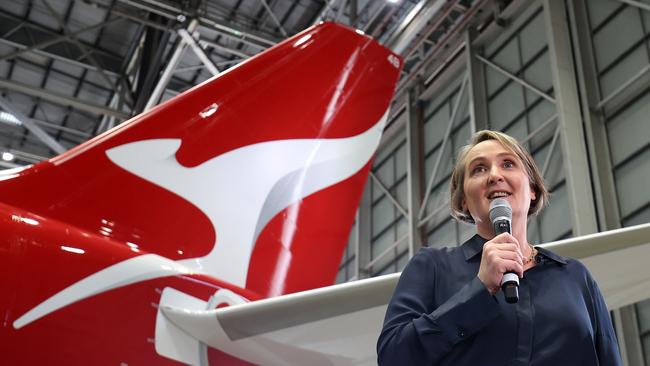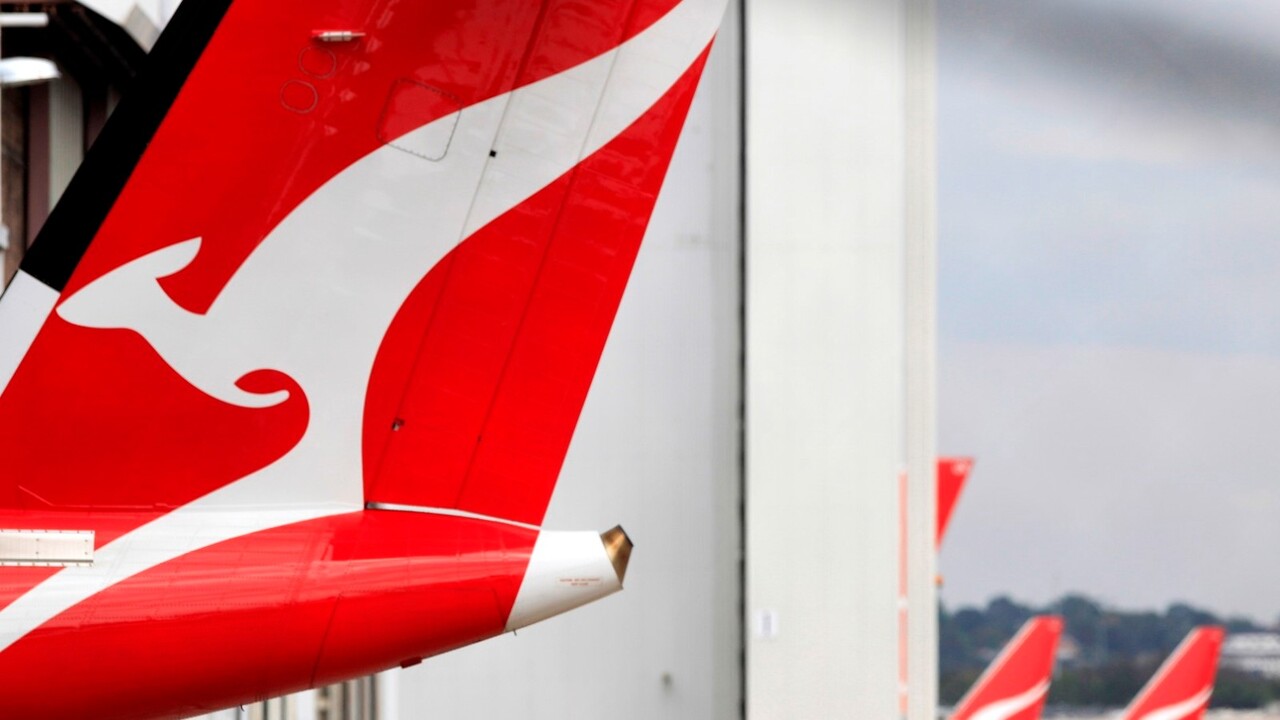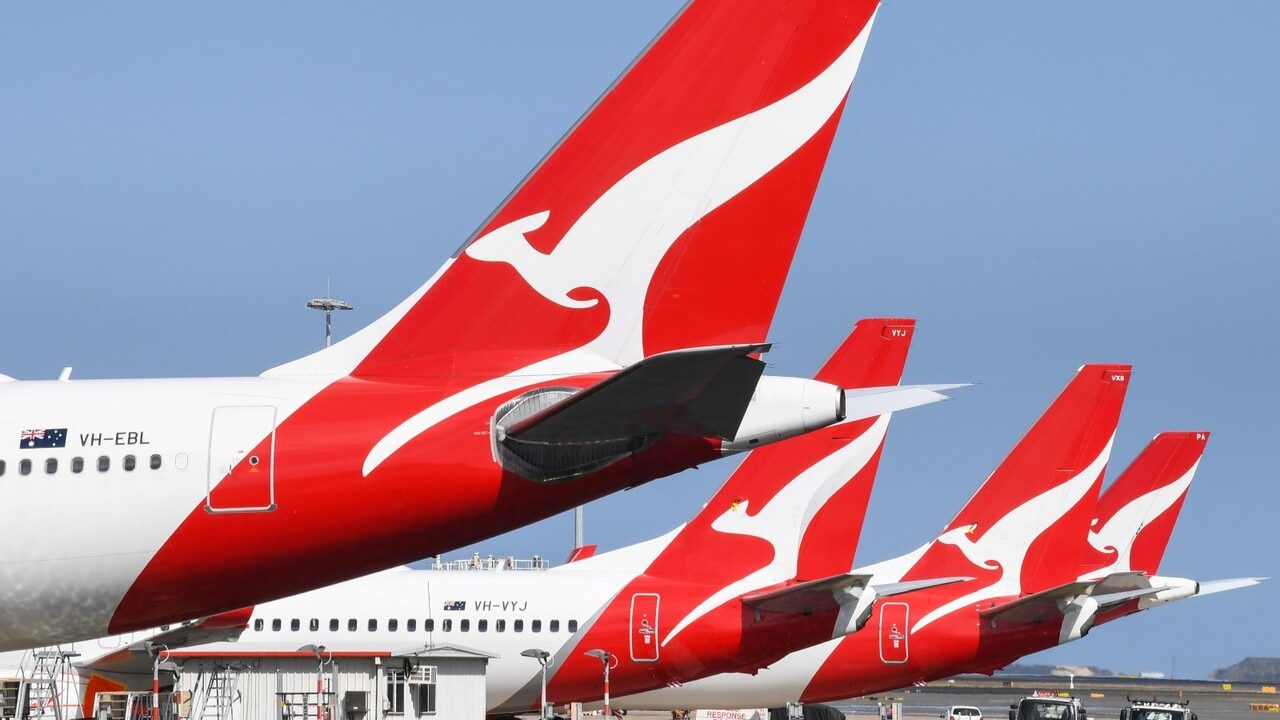Unions laying down the law at Qantas on pay dispute
Qantas is facing a new stoush with unions after short-haul pilots rejected a hefty 26pc pay rise, adding to the woes faced by the airline’s new chief executive Vanessa Hudson.

Qantas short-haul pilots have rejected a 26 per cent pay rise spread over five years, as the powerful worker group joins the growing list of unions laying down the law to the airline’s new chief executive Vanessa Hudson.
The Australian and International Pilots Association, which represents 2300 pilots, including about 85 per cent of the short-haul pilots, said the airline needed to show a “willingness to engage constructively” on the issue.
“The proposed deal involves positive structural changes but they require the pilots to trust that Qantas will not work around them, and that trust has not yet been rebuilt,” AIPA president Tony Lucas said. “We hope Qantas management understands the value of restoring the fractured relationship with its mainline short-haul pilots.”
The short-haul pilots currently fly Qantas’s workhorse Boeing 737 aircraft on domestic routes such as the notoriously profitable Sydney-Melbourne-Brisbane routes, known as the Golden Triangle.

On Wednesday, more than 300 Qantas engineers stopped work for a 24-hour period as they call for increased pay and better working conditions. Qantas does not expect any flights or operations to be affected by the engineers’ industrial action.
The airline’s short-haul pilots last took industrial action during the 1989 domestic pilots dispute, and there have been no threats that they will now – although it seems there is a large distance between what they want in their enterprise agreement and what was offered.
In a ballot held earlier this month, 63.4 per cent of the airline’s 750 short-haul pilots voted to reject the offer, in a move that surprised the airline.
It’s believed that AIPA was largely supportive of the deal but the larger Australian Federation of Air Pilots was against it.
Qantas was rumoured to have subsequently tried to sweeten the deal by offering the prospect its short-haul pilots might get to fly its new A220 aircraft but a Qantas spokesperson said A220s were not part of the considerations.
The business case for the A220s – which will replace the 717s and 737s on domestic routes and also fly internationally – was modelled on the lower-paid QantasLink pilots flying them.
Qantas’s cost base is likely to be seriously threatened by increased demands from its 14 unions, as they demand a better deal from an airline that has just posted its highest and second highest profits on record for the previous two years.

The engineers who collectively form part of the Qantas Engineers Alliance are seeking a 25 per cent pay rise over the course of their three-year enterprise bargaining agreement after their wages were almost frozen over the previous four years.
In August, Qantas agreed a “pragmatic” 26 per cent pay rise with its long- and short-haul flight attendants. The airline had no choice but to offer a deal to its short-haul cabin crew who were employed through separate entities from Qantas mainline because they fall within the Albanese government’s Same Job, Same Pay laws.
But there was no evidence it needed to offer the deal to its international crew.
Qantas said the deal would cost it $90m a year. Insiders say it could be double this when ultra-long haul Project Sunrise flights kick off in 2026 and the cabin crews’ conditions will improve exponentially.
Qantas is a capital-intensive business. Fuel accounts for about 30 per cent of costs and is outside the airline’s control. Labour is another 30 per cent and international its margins in a normal year might be 5 per cent as it competes with Middle East and Asian carriers with lower crew costs.
The union drums are beating louder now at Qantas. Many within the airline are hoping it doesn’t reach the crisis point of 2011 when then-chief executive Alan Joyce grounded the entire Qantas fleet, deliberately inconveniencing 80,000 customers in a ruthless game of chicken amid industrial action by its pilots, baggage handlers and engineers.
Ms Hudson knows she needs to try avoid industrial action after several years of Qantas being the nation’s most complained-about company. The airline also found out this week it will have to pay a $100m-plus fine for illegally firing 1700 baggage handlers.




To join the conversation, please log in. Don't have an account? Register
Join the conversation, you are commenting as Logout